By: Anne Kaiser
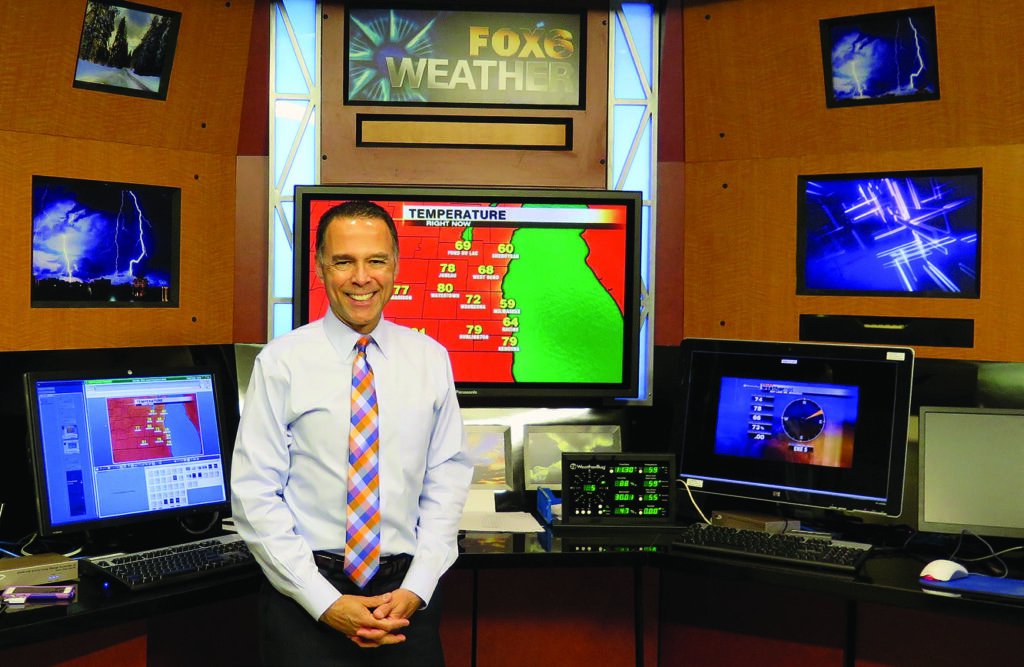
Many Wisconsin residents are familiar with multi-talented, now-retired meteorologist Vince Condella, a former weather reporter for television’s Channel 6 news. His friendly demeanor and clear, upbeat reporting style brought energy and momentum to the daily weather reports throughout his career.
Condella began his meteorology career in Madison, working at WMTV Channel 15 in 1980 and WKOW Channel 27 in 1981. He then moved to Milwaukee, and on February 22, 1982, he began working at Channel 6. He retired 34 years and 3 months later, on May 25, 2016.
Condella’s interest in weather began at an early age, during his childhood in Lombard, Illinois, a western suburb of Chicago. He was fortunate to have the support of his parents, who worked to encourage his budding passion. “By five or six years old, I was interested in all things weather, and my parents fostered that interest by buying me books about the weather and going with me to the library to check out weather books,” Condella explained.
Condella still owns two of his childhood meteorology books, Weathercasting, by Charles and Ruth Laird, and Your Guide to the Weather: An Introduction to Meteorology, by George L. Cantzlaar. The first was a gift from his parents in June 1966, two months before his eleventh birthday. The second book, also a gift from his parents, was received in October 1966.
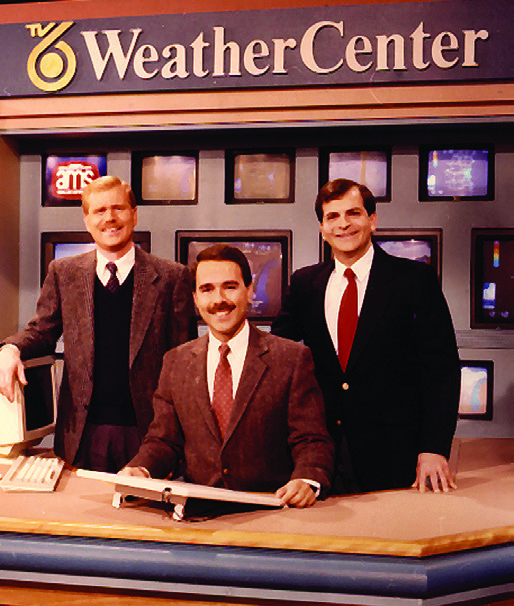

Condella’s parents supported his weather interest with other special, memorable gifts. When he was ten years old, his parents gave him an anemometer to measure wind speed. “We hooked it up on the roof of our house (well…my dad did!)—and I would spend hours in my bedroom during storms and watch the winds gust on the analog dial hanging on the wall,” Condella recalled.
During his formative childhood years, Condella recalls being impressed by several weather events. Though he remembers experiencing “our share of winter storms and spring/summer severe weather,” Condella cites two weather events as having a particular impact in his youth. “The Palm Sunday tornadoes of 1965 (I was nine years old at the time) were huge,” Condella explained. “And the Chicago blizzard of January 26-27, 1967 brought two feet of snow to northeast Illinois and shut down everything for days.”
As a child and teenager, Condella watched meteorologist Harry Volkman broadcasting on television from Chicago. Volkman provided a positive impact on Condella’s growing interest in meteorology, becoming an influential person for him. “Harry had a way of explaining the weather that was educational and fascinating,” Condella recalled. “I became one of his volunteer weather watchers and would write letters to him. He always wrote back.”
Condella remembered another influential person in his early life, a meteorologist for American Airlines stationed at Chicago’s O’Hare International Airport. “He was a member of our parish in Lombard. He would bring home weather maps and explain to me what they meant and how the weather affected the airline flights across the country,” Condella said.
Years later, as an adult, Condella’s early connection to meteorologist Harry Volkman resurfaced at a pivotal highlight in his own career as a meteorologist. Condella’s childhood book from his parents, Your Guide to the Weather: An Introduction to Meteorology, bore a special inscription from his mother: “Son, may we see you on TV some day replacing Harry Volkman.” Condella recalled, “Much later in my life, in 2002, when I received Broadcast Meteorologist of the Year from the American Meteorological Society, Harry Volkman was in attendance, and he autographed the book for me. It was an amazing full circle moment.”
Throughout his career as a well-known television meteorologist, Vince Condella adapted to changes in technology that impacted his work forecasting the weather. His early career involved more hands-on visual art techniques to present weather maps, while later in his career, new technological tools were widely used. He described the changes in this way: “I began my broadcast meteorology career in Madison in 1980 just at the beginning of computer-generated graphics. So I was doing a combination of hand-drawn maps using colored pencils and pens as well as drawing them on the computer. Computer graphics, 3-D satellite images, etc. grew exponentially throughout my career. Also, the numerical predicition models that are used to predict future atmospheric conditions have also improved tremendously, and that has led to a huge increase in forecasting accuracy.”
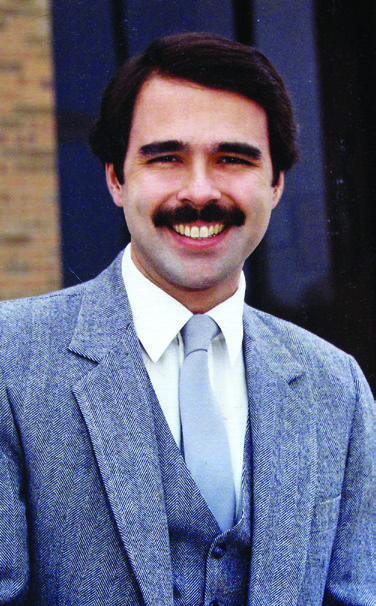
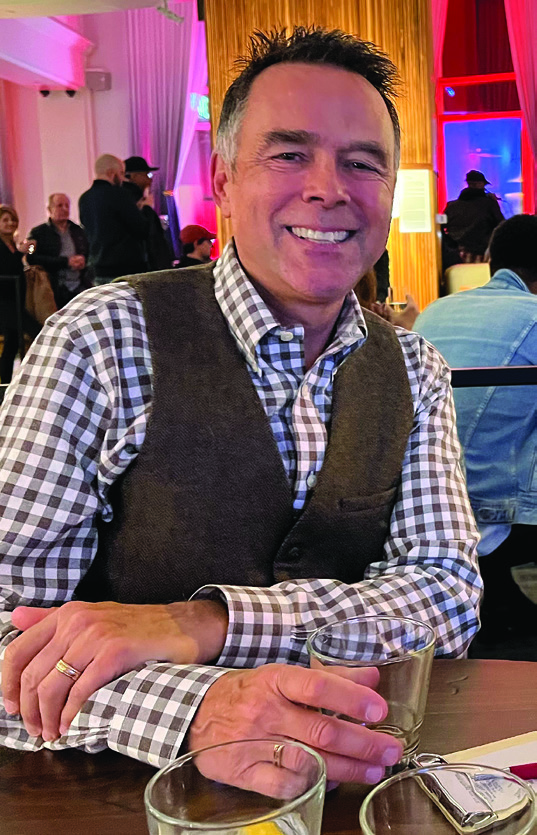
During Condella’s time broadcasting at Channel 6, he typically worked from 1:30 p.m. to 10:45 p.m. Toward the end of his career, he provided weather report segments for the 4:00, 5:00, 6:00, 9:00 and 10:00 p.m. newscasts. “I did my own forecasting,” Condella recalled, “and the hours always got a little longer when extreme weather was hitting the area.”
Several instances of extreme weather stand out in Condella’s mind to this day. One, the December 15, 1987 blizzard in Milwaukee, “shut down the city with snow and wind,” according to Condella. In addition to its substantial weather-based impact, the storm proved pivotal in the weather reporting studio as well. “Me and my fellow meteorologists at Channel 6 stayed up all night,” Condella recalled. “Our news room positioned reporters all over the area, and when daybreak came, we went live on the air from the studio and remotely to report on the storm. This was in the days before local morning news, and it was ground-breaking at the time. What a massive storm!”
Condella reflected on the import of reporting on severe weather. Several tornado systems stood out in his memory as well; he noted that, particularly in those weather situations, “what I said on the air and the information I provided could save lives.” Condella stated, “The Wales tornado of April 27, 1984, the huge F-5 tornado that tore through Oakfield, Wisconsin on July 18, 1996, and the nighttime twister that damaged Eagle, Wisconsin on June 21, 2010 were all career-defining storms. Live tornado storm coverage runs strictly on adrenaline. I’ll never forget them.”
As Condella looked back on his successful career as a meteorologist, he reflected on his preferred weather system. “I was always a fan of clear skies and quiet weather. Much less stressful to forecast!” Most important to him, in addition to the camaraderie of his fellow reporters at Channel 6, was the support he received from his parents that allowed him to fully explore and pursue his passion in meteorology from a young age onward. “I was incredibly fortunate that my parents recognized my interest in the atmosphere at such an early age and fostered that interest with weather-related books and gifts,” Condella said. “Everyone needs those parents and/or mentors to guide them along the way and explore interests. Not everybody has that chance, but I am thankful I did.”
Finally, Condella described the positive impact his wife has had on his career and his life in general. “My wife of 44 years, Janet, has always been a stabilizing influence for me, not just in my meteorology career but life in general. She was always there with great advice and lots of love and encouragement,” Condella said. “I would not be where I am today without her in my life.”
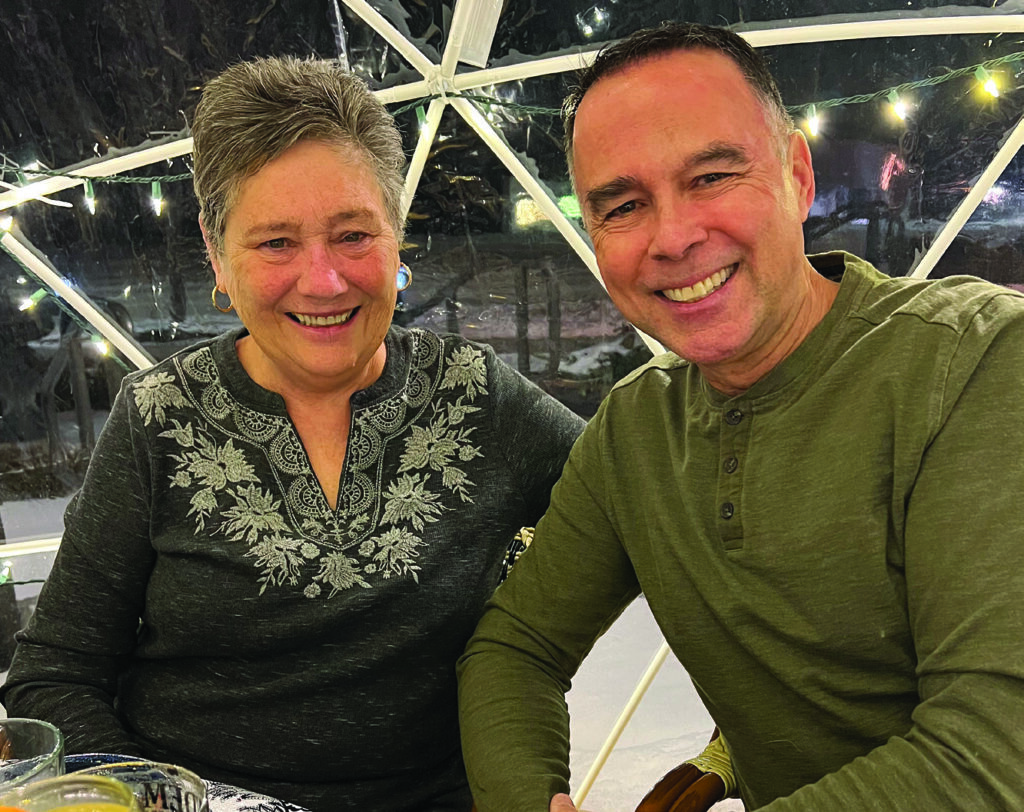

This article is from the EY May 2023 Issue


